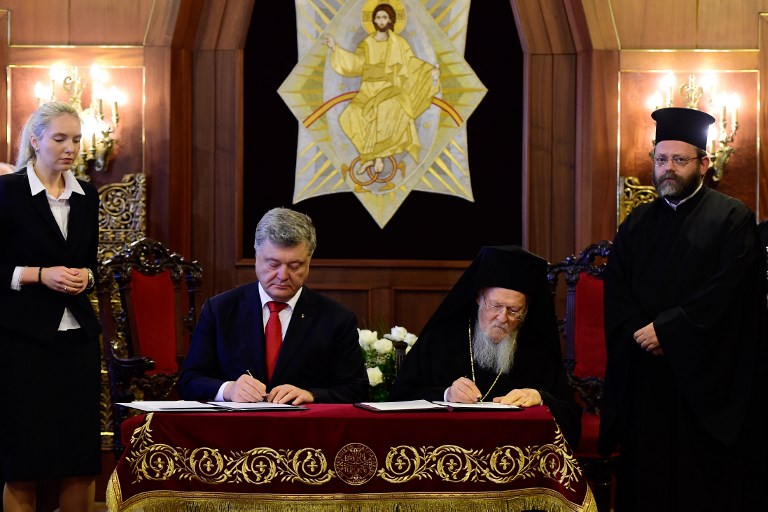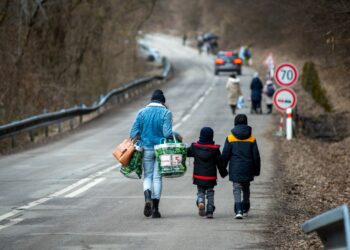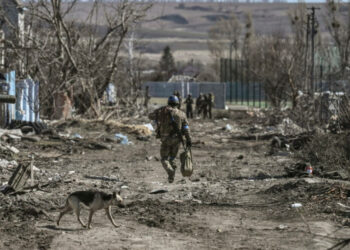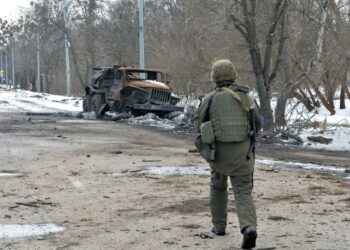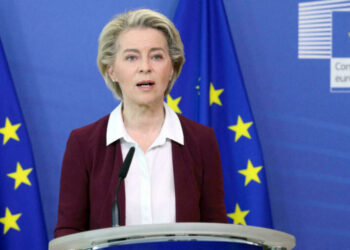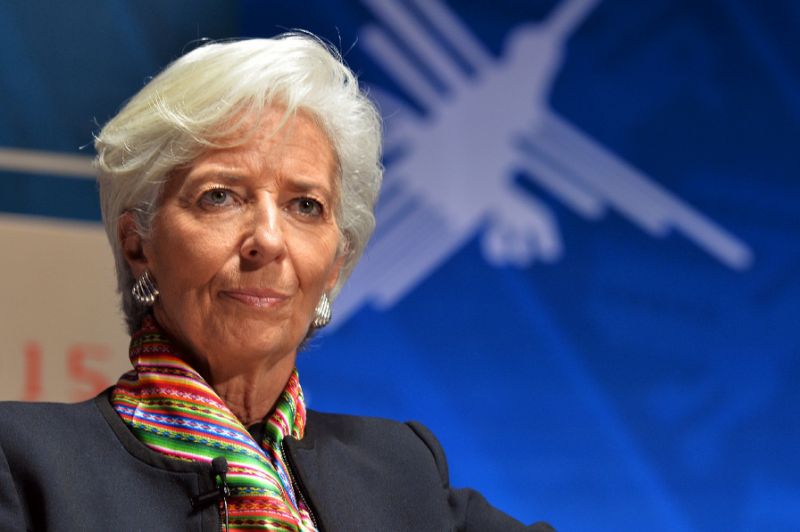Having lagged in the polls throughout 2018, Ukrainian President Petro Poroshenko staged a surprising recovery in December. With his approval ratings now reaching 16 percent, he is ranked second-best heading into the March 31 presidential elections. Yet, his re-election prospects still look very uncertain, at least partly due to a profound misreading of realities of Orthodox religion in Ukraine.
Poroshenko’s strategy was to focus on the creation of a new Orthodox church in Ukraine. The new church was founded on December 15 and confirmed by the Patriarch of Constantinople the next month.
Ukrainians today celebrating both Orthodox Christmas Day & the creation of a new, autocephalous Orthodox Church of Ukraine, as the long-awaited Tomos, or document (pictured with @poroshenko & Metropolitan Epiphanius below), is displayed in Kyiv's ancient St. Sophia's Cathedral. pic.twitter.com/xdh6o39GSS
— Christopher Miller (@ChristopherJM) January 7, 2019
To boost his elections bid, Poroshenko and the new church’s head immediately began a tour heralding the church, but the tour was suspended after just a few weeks. Previously ubiquitous billboards featuring Poroshenko and the official document confirming the new church’s credentials suddenly disappeared.
The creation of the new church has failed to propel Poroshenko to the top of the race. He is lagging behind popular young comedian Volodymyr Zelensky who mocks Poroshenko’s concept of unifying Ukrainians around the new church.
National Orthodox Church in Ukraine
Talks about the need for a national Orthodox church in Ukraine have been held since the early 1990s, but never came to eventuation. This was mainly because of opposition from the Ukrainian Orthodox Church of Moscow Patriarchate, the largest Orthodox church in the country.
By early 2018, and despite the ongoing conflict with Russia, only a third of the population supported the idea of Ukraine creating its own independent Orthodox church. It all changed in April that year when President Poroshenko began campaigning for the matter. This campaign, supported by most Ukrainian politicians, had a powerful propaganda effect and briefly convinced many Ukrainians of the need for a “united national church.”

The supporters of the new national church cited data from the Kiev-based pollster Razumkov Center. It showed that only 13 percent of Ukrainians supported the Ukrainian Orthodox Church of Moscow Patriarchate. The Orthodox Church of Kiev Patriarchate, which broke away from Moscow in the 1990s, was significantly more popular with 29 percent of respondents claiming to belong to it. Based on these figures, creating a new Orthodox Church independent from Moscow was bound to be popular with the Ukrainians and should easily become the largest Orthodox church in Ukraine.
However, my field research in Ukraine over the last four years shows a rather different picture, explaining why Poroshenko’s tour failed to boost his ratings permanently.
Churchgoers in Ukraine
My research in central and southern Ukraine shows that there are very few active churchgoers. In most of the country, church attendance reaches only about 1 percent in cities, and 2 percent in rural areas.
In the Razumkov Center poll, 19.2 percent of respondents in central Ukraine said they visited a church on a previous Sunday in April 2018. However, in practice, no more than 0.5-0.7 percent attended a Sunday service in Kiev in June 2018. Most Orthodox churches in Ukraine don’t even have the capacity to accommodate more than 2 percent of the population simultaneously.
Meanwhile, the regular churchgoers (attending services at least twice a month) are satisfied with the religious doctrine and practices of the Ukrainian Orthodox Church Moscow Patriarchate, including its relations with Russia, and are less motivated by Ukrainian political nationalism. On the whole, they don’t support Poroshenko’s initiative for a new church.
It’s clear that, given the absence of demand from religious activists or society at large, the campaign to form an independent Ukrainian church was nothing more than part of Poroshenko’s election campaign, which relied on the key slogan “Army, Language, Faith.”
As a result, the goal to unite Ukrainians by establishing a national church has not succeeded. Neither the majority of the actual Orthodox churchgoers nor its clergy wanted a new church. The concept was rushed through via non-democratic methods under pressure from a secular president.
No Support for New Church
The new church emerged as a de facto union of two smaller, previously unrecognized Ukrainian Orthodox churches. Its religious hierarchy hails from those two churches, with only 2 out of 83 bishops of Ukrainian Orthodox Church Moscow Patriarchate present at the founding council.
There was no sense of “holiness,” piety or respectability attached to the new Church, something particularly important to active churchgoers. The refusal of other Orthodox churches to support the creation of a national church strengthened them in this conviction.
This does not, of course, mean that there have been no voluntary defections to the new church. But this has only occurred on a very small scale. For example, in the whole of Kiev, only 3 out of 270 parishes switched into the new church despite the city’s generally patriotic population.
As a result, the state and local authorities began an open confrontation with regular churchgoers and clergy. In rural areas, decisions on the transfer are often made at community meetings under the guidance of local authorities, rather than by the parishioners themselves. This is no longer a case of persuading parishioners, but of seizing church property from the Ukrainian Orthodox Church Moscow Patriarchate in favor of the newly established church.
RISU’s interactive map of former Moscow-controlled parishes joining Ukraine’s new Constantinople-led church shows the old west-east/south divide. So far it’s 52 parishes in total, 20 of them in Vynnitsa Region (figures via Nikolay Mitrokhin). pic.twitter.com/TKNJSCUUtG
— Leonid ХВ Ragozin (@leonidragozin) January 14, 2019
In many cases, priests and at least some of the parishioners refuse to change their allegiance. The result is that old parishes continue to exist while their church property is taken away from them, or their claims on their old churches are disputed.
At the end of February, only about 3 percent of the total number of Ukrainian Orthodox Church Moscow Patriarchate parishes officially “went over” to the new church. It is no coincidence that the majority of parishes and priests that officially changed their allegiance have been in four regions where Poroshenko and his political party control local administrations. In the east, south, far west, and Kiev region uptake on the new church has been virtually non-existent.
State Church and Large-Scale Confrontation
Ukraine in 2018-2019 acquired not so much an independent Ukrainian church, but an official state church. The authorities also introduced practices of religious nationalism into domestic politics, which contradicts pluralism and the preservation of human rights in the religious and ethnic sphere enshrined in the Ukrainian constitution.
Instead of uniting the nation, Poroshenko’s policies in the religious sphere led to a large-scale confrontation. While the creation of a new state church might have briefly mobilized nationalist electorates in Poroshenko’s favor, the attempt was insufficient to sustain support from most Ukrainians.
Disclaimer: The views and opinions expressed here are those of the author and do not necessarily reflect the editorial position of The Globe Post.

